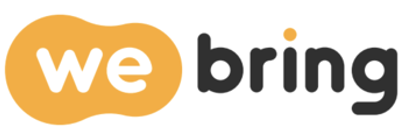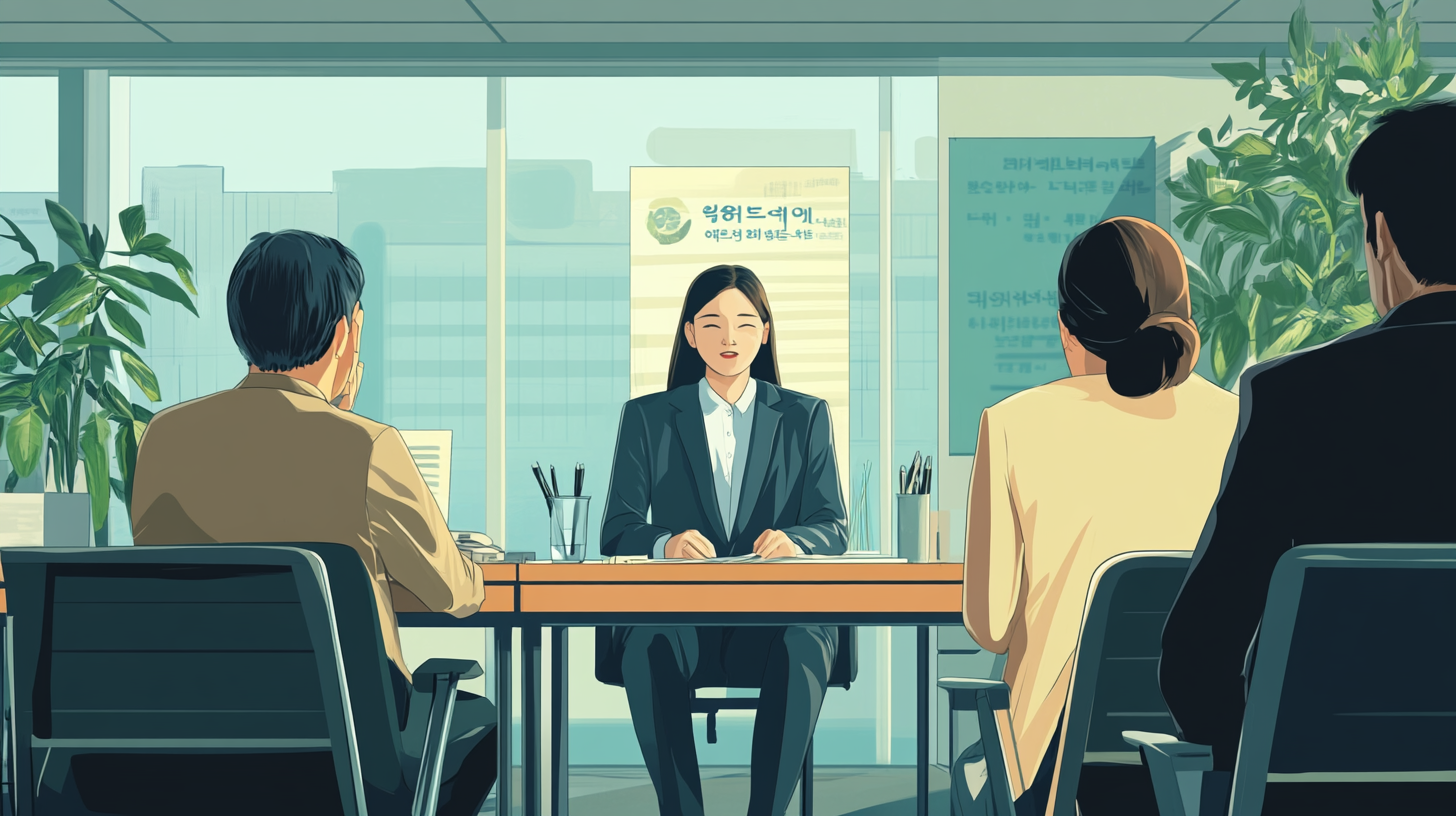1) Why First Impressions Matter
Interviews are the most critical stage where companies and applicants meet face-to-face and evaluate each other. Especially in Korean interview culture, a first impression is highly valued. From attire to facial expressions and the way you greet the interviewer, the image perceived the moment you walk in can significantly affect your chances of success. This applies equally to international students and domestic applicants. I, too, made common mistakes during my first interview, such as trembling voice and forgetting what I had prepared due to excessive nervousness. Through multiple interviews, I realized that ultimately, a ‘well-prepared and sincere attitude’ is what creates a strong first impression.
Though it may vary by company, wearing neat business casual or formal attire tends to be the safest choice. For foreign applicants, suit styles may differ in their culture, but in Korea, emphasis is placed on “neatness without exaggeration.” Rather than traditional, overly ornate suits, opt for something simple and trustworthy. Colors like black, navy, or gray often give a more stable impression than flashy designs. Keep your hairstyle tidy, and if you choose to wear makeup, aim for a natural and friendly look.
2) Ideal Attitude and Posture
Your behavior during an interview is a prime opportunity to demonstrate “diligence and responsibility.” Making eye contact with a smile, actively listening to the interviewer’s questions, and responding in a clear tone are all essential. In Korea, a slight bow when greeting is considered polite. When greeting, say clearly, “Hello, my name is ○○○. It’s a pleasure to meet you.” This alone can leave a tidy and courteous impression.
When seated, avoid leaning too much on the backrest or shaking your legs. Interviewers pay attention not only to your answers but also to your overall demeanor, level of nervousness, and etiquette. After answering, maintain eye contact with the interviewer and pause briefly to see if they have any follow-up questions. While you should avoid unnecessarily long silences, rushing to add extra words impulsively is also discouraged. Above all, maintaining a sense of “psychological composure” to naturally articulate what you’ve prepared is crucial.

3) Common Interview Questions and Answer Strategies
One of the most common interview questions is the self-introduction. In Korean interviews, candidates are usually given about 1-2 minutes for this. You should concisely express your major, area of interest, key experiences, and enthusiasm for the company and the role. Rather than rambling, structure your answer around key points. For example: “While majoring in marketing in university, I led a social media ad project at ○○ startup, resulting in a 20% increase in traffic. This experience taught me the importance of data analysis in consumer behavior, and I now wish to further hone these skills at your company.” This kind of summary creates a strong impact.
Another common question is about “your strengths and weaknesses.” In Korean interview culture, your answer to the weakness question is used to assess your honesty and self-awareness. While it’s risky to share something too problematic, it’s also best to avoid overused clichés that turn a weakness into a supposed strength. Rather than saying, “My weakness is perfectionism,” which can come off as insincere, say something like: “I used to spend too much time obsessing over minor details, but I’ve learned to prioritize using project management tools.” This shows a clear effort to improve and lends more credibility to your response.
4) Tips for Foreign Applicants
For candidates whose native language isn’t Korean, language mistakes during interviews can happen—but it’s nothing to worry excessively about. Interviewers generally expect a certain level of language barrier. What matters more is “how clearly and sincerely you can communicate.” To reduce nervousness, prepare a list of possible questions ahead of time and practice answering them in Korean. Speaking slowly and confidently can actually leave a clearer and more trustworthy impression.
Another point to consider is how you explain cultural differences. Korean interview culture generally places a high value on collaboration, organizational adaptability, and etiquette. If you’re a foreign applicant, you can say: “I’ve learned the importance of teamwork, and because I’ve worked with people from various cultural backgrounds, I believe I can bring strong communication skills to your company.” Preparing to articulate “how your culture differs from Korean culture and how you plan to bridge that gap positively” in advance will help you respond confidently even to unexpected questions.
5) Effective Storytelling in Interviews
Even in Korean-style interviews, storytelling is becoming increasingly important beyond just your resume and cover letter. Companies aren’t only interested in your qualifications—they want to understand your values and how you’ve developed them. A good storytelling structure is “problem – solution – result.” For instance, describe how you resolved a conflict while in a school club or handled an unexpected crisis during an internship. If you can explain what you learned from those situations, it helps highlight your values and ability to learn.
When you base your responses on real-life stories, interviewers find them not only more engaging but also easier to visualize who you are. Instead of simply saying “I am responsible,” explain, “During the ○○ project, I stayed up all night organizing data and coordinating the division of tasks among teammates, which helped us complete the task three hours before the deadline.” This is much more convincing than vague assertions.
6) Handling Unexpected Questions
Sometimes, interviewers ask completely unpredictable questions. These can range from light ones like “What are your hobbies?” to more challenging ones like “Can you name one weakness of our company?” Such questions often seem unrelated but are used to evaluate your “spontaneity” and “authenticity.” Rather than panicking, think about what the company is trying to assess with the question.
For instance, the question “What is a weakness of our company?” could be testing how well you’ve researched the organization and your ability to evaluate things critically. Avoid overly blunt or negative critiques. Instead, say, “According to recent news articles and social media feedback, some users feel the customer support service is a bit slow. However, I believe this is a transitional challenge due to the company’s rapid growth, and if hired, I’d like to contribute to optimizing the customer response system.” Proposing a solution alongside your observation works strongly in your favor.
7) Closing Remarks and Follow-Ups
Toward the end of the interview, interviewers are likely to ask, “Do you have any questions?” Use this as a chance to express your interest in the company and demonstrate a proactive attitude. Asking about organizational culture, performance evaluation systems, or collaboration methods shows your curiosity about the actual work environment. Instead of jumping into questions like “When will salary negotiations happen?”, more appealing options include, “Could you share how your new employee training program is structured?”
After your interview, sending a short thank-you note via email or message is a good gesture. Saying something like, “Thank you for the opportunity to interview. The meeting further strengthened my interest in the role,” leaves a positive impression. Even Korean companies today generally view such follow-up communication positively. Just keep your message concise and avoid being overly lengthy or burdensome.
8) Interview Skills Are Built Through Real Experience
Hardly anyone gets interviews perfect from the start. I, too, was nervous at first and often caught off guard by unexpected questions. But after attending interviews at multiple companies, I started to get a sense of what Korean employers focus on and learned to identify areas I often overlooked. Ultimately, interview skills are built through actual experience. Instead of being discouraged by one or two failures, analyze your shortcomings objectively and commit to improving with each attempt.
At its core, an interview is your stage to prove you’re the right fit for the company. Rather than exaggerating or sugarcoating, be honest about what you’ve done and are capable of. Present it in a way that aligns with the company’s vision and how you can create synergy. Dress neatly, be confident in your demeanor, and prepare your answers logically. Doing so will help you perform successfully in Korean-style interviews.

K-Name Studio: Create your perfect Korean name based on your personality and style.
What’s My K-Beauty Personal Color?
WeBring Service : Provides personalized services to foreigners living in Korea
Exclusive offer: Introducing foreign car rental in Korea, WeBring-SoCar

